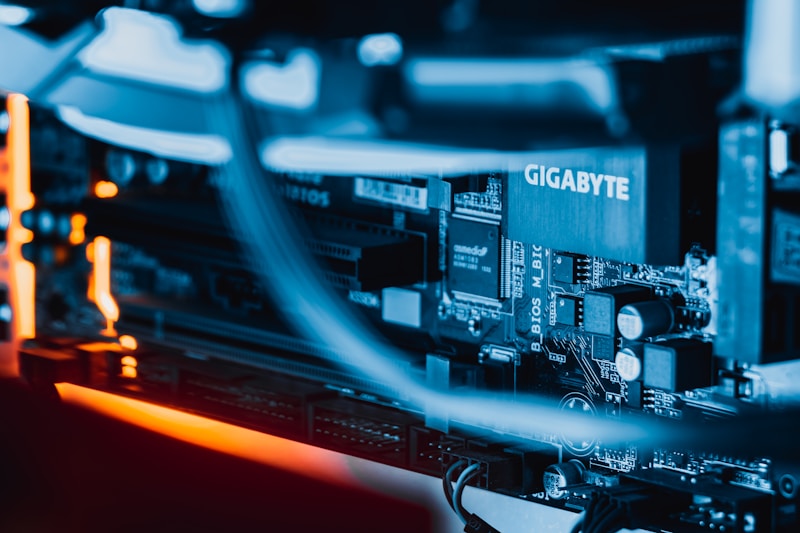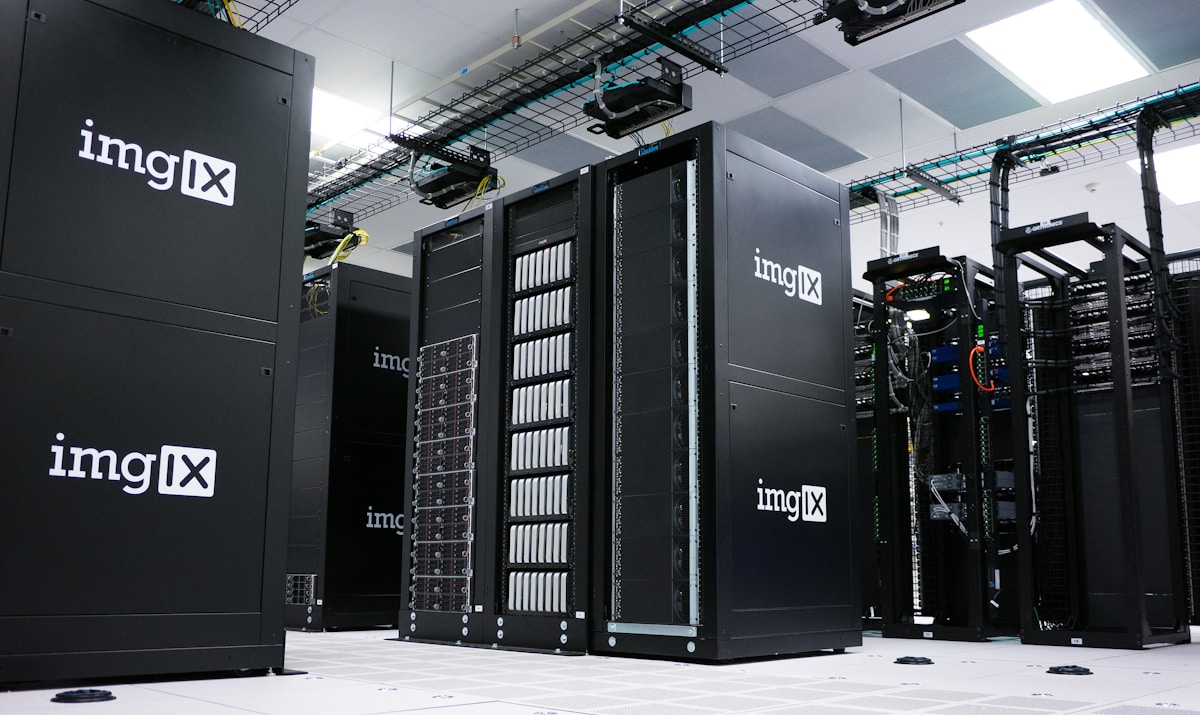Dedicated Servers: An In-Depth Look
Dedicated Servers: An In-Depth Look
When businesses need reliable hosting, they often turn to dedicated servers. Unlike shared hosting, dedicated servers offer resources exclusive to one client. This choice provides better performance, security, and control.
What is a Dedicated Server?
A dedicated server is a physical machine rented to a single client. It’s not shared with anyone else, allowing for full control over configurations. These servers are often housed in data centers and provide robust computational power.
Key Benefits of Dedicated Servers

- Performance: No sharing of resources means consistent and predictable performance.
- Security: Physical isolation significantly reduces vulnerability to attacks.
- Control: Full administrative access allows customization to match specific needs.
- Reliability: Robust hardware leads to less downtime.
Performance: Consistent Power
Dedicated servers promise high performance. Resources such as CPU, RAM, and storage are not shared. This setup is ideal for high-traffic websites and applications. The isolated environment ensures that performance isn’t impacted by other users.
Large databases and resource-intensive tasks run smoothly on dedicated servers. They handle high transaction volumes with ease. Companies that rely on uptime find this performance invaluable.
Security: A Fortified Environment

Dedicated servers provide heightened security. Being the sole occupant of a server eliminates risks associated with shared environments. Security breaches in shared hosting can compromise all sites on a server, a scenario avoided with dedicated hosting.
Advanced security measures can be implemented. Firewalls, intrusion detection systems, and secure VPNs are more effective when you control the server environment. The server’s physical security is enhanced by the measures data centers take.
Control: Tailored to Your Needs
Complete control is a major advantage. Dedicated servers can be customized to suit business-specific requirements. From the choice of operating system to software configurations, you make the decisions.
This control allows for optimizing the server for specific applications. Businesses can run special software without restrictions imposed by shared environments. Access to root or administrative privileges makes troubleshooting easier.
Reliability: Minimizing Downtime
Hardware redundancy in data centers ensures that dedicated servers are reliable. Data centers provide backup power supplies, advanced cooling systems, and constant monitoring. These setups minimize downtime due to hardware failures or other issues.
Service Level Agreements (SLAs) often guarantee uptime and performance. High availability is crucial for businesses that operate round the clock or handle critical tasks. Dedicated servers deliver this reliability.
Use Cases for Dedicated Servers
- E-commerce Websites: Require fast loading times and secure transactions.
- Web Hosting: Hosting multiple websites with high traffic.
- Gaming Servers: Require high-performance and low latency.
- Database Servers: Large databases need fast queries and strong security.
- Email Servers: Handle large volumes of emails without downtime.
E-Commerce Websites
E-commerce sites need dedicated servers for superior performance. They handle large numbers of transactions and customer data. Speed and security are paramount. Downtime can lead to lost sales and credibility.
Dedicated servers ensure quick load times and smooth transactions. Businesses can implement PCI-DSS compliance for payment security. High performance during peak shopping periods avoids slowdowns.
Web Hosting
Web hosting providers often use dedicated servers. They host multiple websites without resource limitations. Each site receives consistent bandwidth, storage, and CPU.
Providers can customize the hosting environment. They offer different plans for clients based on their needs. Easy scalability supports growing websites with increasing traffic.
Gaming Servers
Gaming servers benefit from dedicated hosting. Gamers demand low latency and high performance. Dedicated servers deliver a smooth gaming experience without interruptions.
Administrators can install and configure game-specific software. They control the gaming environment fully. This setup reduces lag and enhances player satisfaction.
Database Servers
Large databases require strong performance and security. Dedicated servers handle intensive data operations. Fast queries and transactions are critical for database-driven applications.
Security measures protect sensitive information. Dedicated servers allow encryption and secure access protocols. Backup solutions ensure data integrity and availability.
Email Servers
Businesses that handle large volumes of email need dedicated servers. They provide reliable email delivery and storage. Downtime or delays impact communication and productivity.
Dedicated servers offer spam filtering and security features. They ensure email availability and protect against attacks. Custom configurations optimize server performance for email.
Choosing a Dedicated Server Provider
- Reputation: Opt for providers with positive reviews and proven track records.
- Support: Ensure 24/7 support is available for troubleshooting and assistance.
- Scalability: Providers should offer easy upgrade paths as your needs grow.
- Security: Look for providers that emphasize robust security measures.
- Cost: Consider pricing structures and the balance between cost and features.
Reputation
Selecting a reputable provider is crucial. Read reviews and testimonials from other customers. A well-regarded provider is more likely to offer reliable services. Their history indicates experience and trustworthiness.
Support
24/7 support is essential. Issues can arise at any time, and prompt resolution is critical. Ensure the provider offers multiple support channels, such as phone, chat, and email. Responsive support ensures minimal disruption to your services.
Scalability
As your business grows, your server needs will change. Choose a provider that offers scalability. Upgrading resources or migrating to more powerful servers should be straightforward. This flexibility supports your growth without significant downtimes.
Security
Security should be a top priority. Opt for providers that emphasize security measures. This includes physical security at data centers and cybersecurity protocols. Regular updates and patches are necessary to protect against threats.
Cost
Cost is an important factor but balance it with features. Expensive doesn’t always mean better. Compare what different providers offer in their packages. Look for transparent pricing without hidden fees.
Setting Up a Dedicated Server
Setting up a dedicated server involves several steps. Start by selecting the hardware configurations. RAM, CPU, and storage should meet your application demands. Choose an operating system that supports your software needs.
Install the operating system and necessary software. Configure security settings, including firewalls and user permissions. Regular updates and patches are essential to maintain security.
Hardware Configurations
Hardware is the backbone of your server. High performance requires ample RAM, powerful CPU, and sufficient storage. SSDs provide faster data access than traditional hard drives. Choose hardware based on the workload and performance requirements.
Operating System
The operating system is your server’s foundation. Popular choices include Linux distributions and Windows Server. Each has its pros and cons. Your choice depends on compatibility with your applications and ease of use.
Software Installation
Installing the necessary software is the next step. This includes web servers, database management systems, and application servers. Ensure all software is compatible with the operating system.
Regular updates keep your software secure and functional. Automated update systems can simplify this task but require configuration.
Security Settings
Configuring security settings protects your server. Firewalls regulate traffic coming in and out of your server. Set up intrusion detection systems to monitor for malicious activity.
User permissions control access to your server. Grant permissions based on necessity. Implement strong password policies and consider multi-factor authentication.
Regular Maintenance
Maintenance ensures the continuing performance of your dedicated server. Regularly check hardware for signs of wear. Monitor system performance and adjust configurations as needed.
Backup solutions are vital. Regularly back up data to prevent loss. Test backups to ensure they work when needed. Maintenance includes cleaning up unnecessary files and software to keep your server running smoothly.
Conclusion
Dedicated servers offer unmatched performance, control, and security. They are ideal for high-demand applications, e-commerce, and critical tasks. Choosing the right provider and setting up your server properly are key steps. Regular maintenance ensures ongoing reliability and performance. If your business requires stability and power, dedicated servers are a worthy investment.



